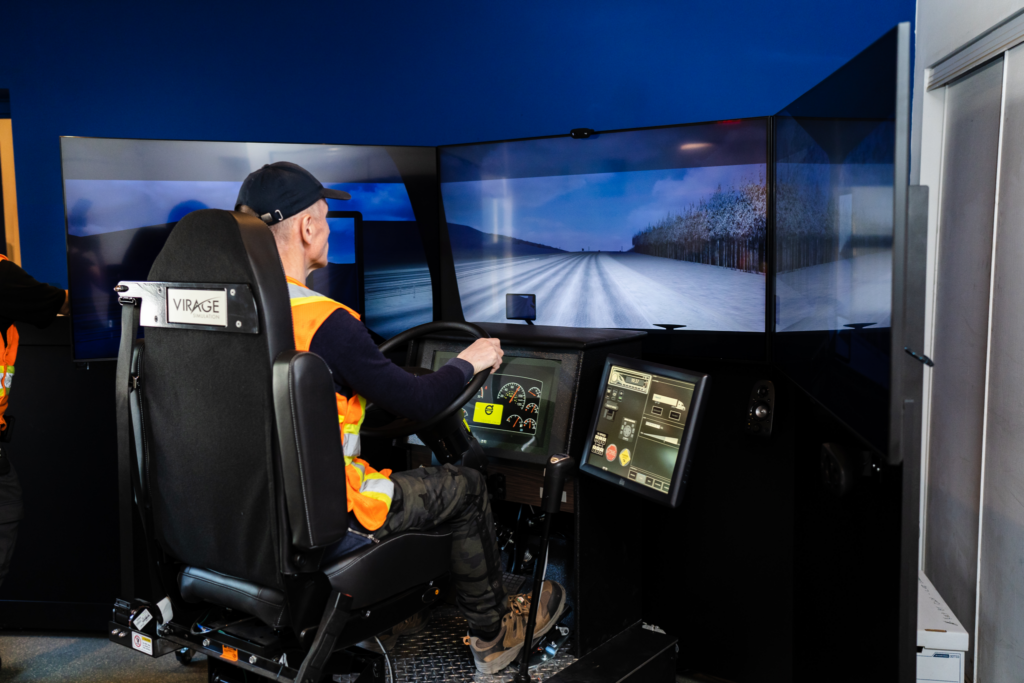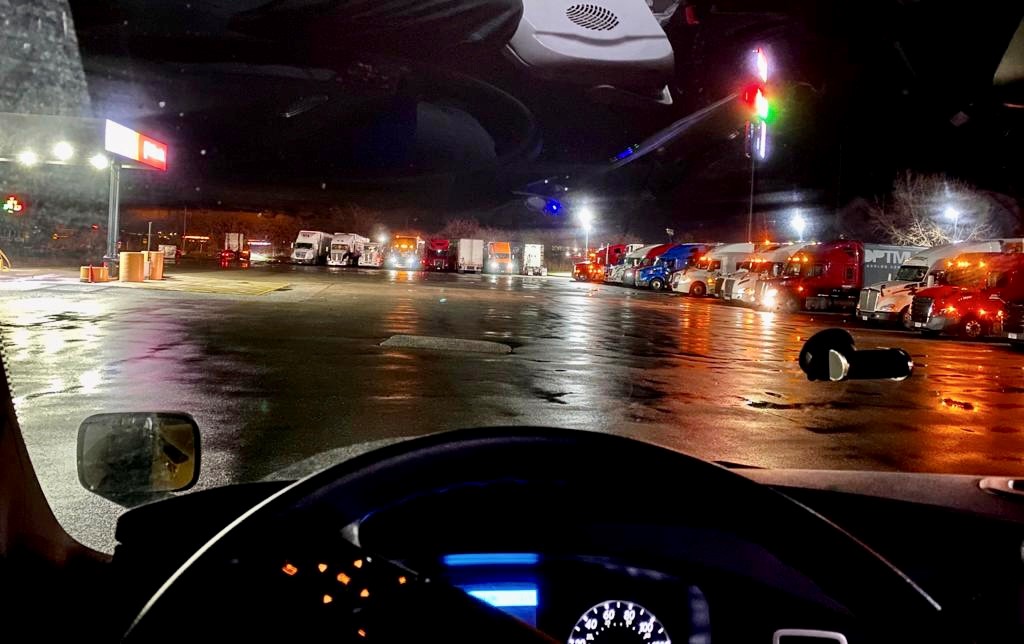USask studies aim to improve driver training, working conditions
The Humboldt Broncos bus crash steered Mackenzie McKeown’s career toward improving truck driver training, occupational medicine, and public health and safety.
The University of Saskatchewan PhD candidate, a Humboldt, Sask., native is conducting two studies – using technology to improve student driver training and improving truck stops – aimed at bettering the life and working conditions of truckers.

McKeown was an undergrad on April 6, 2018, when 16 people were killed and 13 injured after a bus carrying the Humboldt Broncos junior hockey team was struck by a tractor-trailer on a rural highway intersection in the province.
“I was roughly a year older than most of the victims. I worked at the rink all year throughout high school at the concession stand and during every Broncos game. My fiancé was a goalie for the AA team and his family used to billet Broncos.
“I saw how the crash affected our community,” she said.
McKeown’s father is a carpenter and she’s seen how the job has taken a physical toll on him. “I am working with the trucking industry, but it would be cool to expand to other trades, as all need improvement in training. It is difficult for the workers to find work-life balance. They don’t get the appreciation they deserve.”
The research presented itself when she was a Master’s in public health student. She reached out to Dr. Alexander Crizzle, director of the driving simulation laboratory at the university, who is now her supervisor.
Standardizing MELT
In one study, McKeown’s goal is to standardize MELT (mandatory entry-level training) across Canada by improving simulator training for student drivers.
She is recruiting 100 longhaul truck drivers for the study on challenging driving situations and has 24 volunteers so far. Participants are asked to complete questionnaires, offer a health assessment, and perform tests assessing vision, cognition and motor abilities.
Training for challenging situations
They also use a driving simulator and face challenging situations like being cut off by four-wheelers and nighttime wintery conditions.
McKeown said, “A new driver training in Saskatchewan is not practicing driving fully loaded trailers in the B.C. mountains. Give them an opportunity to practice for those situations. It will benefit fleets as they will have safer drivers and less costs for repairs and insurance premiums.”

For the second study on truck stops, she is looking for 400 longhaul truckers in Canada to share views in an online survey on what types of amenities are required to inform future development of facilities. McKeown will conduct interviews with trucking companies, government representatives and trucking associations to obtain additional information.
“Truck stops in Canada don’t provide the opportunity to be physically active, don’t have affordable healthy food options and quiet sleeping options,” she noted.
Drivers interested in volunteering for the studies can email McKeown (mackenzie.mckeown@usask.ca) for more information.
She will complete the data collection by the end of the year and present the reports before June 2025.
Have your say
This is a moderated forum. Comments will no longer be published unless they are accompanied by a first and last name and a verifiable email address. (Today's Trucking will not publish or share the email address.) Profane language and content deemed to be libelous, racist, or threatening in nature will not be published under any circumstances.
Congratulations on your great work MacKenzie, and thanks Leo for brining this project to our attention. Looking forward to seeing more when her results are available.

That sounds good but add studies on facilities for drivers at shipping and receiving sites. A lot of places have zero accommodations for the drivers, who are key to the business.